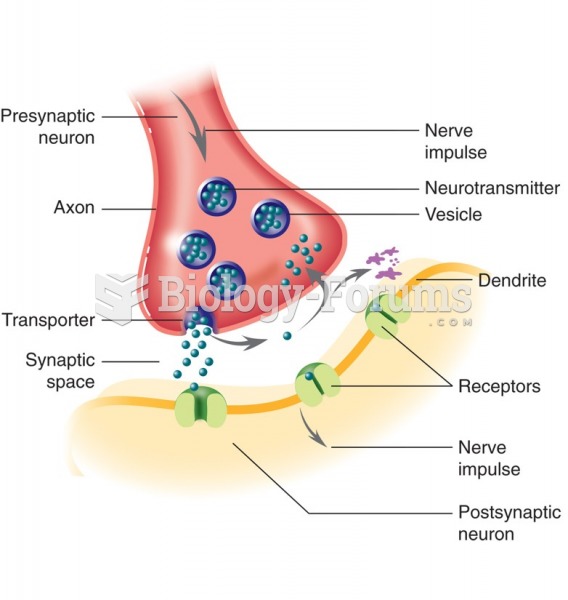|
|
|
The first oral chemotherapy drug for colon cancer was approved by FDA in 2001.
Medications that are definitely not safe to take when breastfeeding include radioactive drugs, antimetabolites, some cancer (chemotherapy) agents, bromocriptine, ergotamine, methotrexate, and cyclosporine.
There are major differences in the metabolism of morphine and the illegal drug heroin. Morphine mostly produces its CNS effects through m-receptors, and at k- and d-receptors. Heroin has a slight affinity for opiate receptors. Most of its actions are due to metabolism to active metabolites (6-acetylmorphine, morphine, and morphine-6-glucuronide).
When blood is exposed to air, it clots. Heparin allows the blood to come in direct contact with air without clotting.
If you could remove all of your skin, it would weigh up to 5 pounds.







